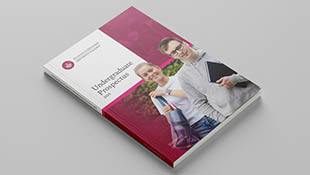-
Courses

Courses
Choosing a course is one of the most important decisions you'll ever make! View our courses and see what our students and lecturers have to say about the courses you are interested in at the links below.
-
University Life

University Life
Each year more than 4,000 choose University of Galway as their University of choice. Find out what life at University of Galway is all about here.
-
About University of Galway

About University of Galway
Since 1845, University of Galway has been sharing the highest quality teaching and research with Ireland and the world. Find out what makes our University so special – from our distinguished history to the latest news and campus developments.
-
Colleges & Schools

Colleges & Schools
University of Galway has earned international recognition as a research-led university with a commitment to top quality teaching across a range of key areas of expertise.
-
Research & Innovation

Research & Innovation
University of Galway’s vibrant research community take on some of the most pressing challenges of our times.
-
Business & Industry

Guiding Breakthrough Research at University of Galway
We explore and facilitate commercial opportunities for the research community at University of Galway, as well as facilitating industry partnership.
-
Alumni & Friends

Alumni & Friends
There are 128,000 University of Galway alumni worldwide. Stay connected to your alumni community! Join our social networks and update your details online.
-
Community Engagement

Community Engagement
At University of Galway, we believe that the best learning takes place when you apply what you learn in a real world context. That's why many of our courses include work placements or community projects.
Structure
Step by step
During the first year, each student enters with one or more supervisors who have a research interest in the topic being investigated. In addition, students are assigned to a small group of other academic staff in related fields, who together are known as the student’s Graduate Research Committee (or GRC).
Graduate study and research in economics builds upon firm foundations in economic analysis and quantitative methods. Consequently, the early stage of the PhD includes coursework, consisting of modules in:
- Advanced Microeconomic Theory
- Advanced Macroeconomic Theory
- Econometrics
- Philosophy of the Social Sciences
The first year also includes the completion of an advanced research proposal.
During the second, third and fourth years, the PhD student focuses on the thesis, meeting regularly with their supervisor.
The PhD experience
Throughout their studies, students attend regular seminars given by invited external speakers, faculty of the discipline of economics and other PhD students in economics (typically two seminars weekly during term).
The student provides annual reports of progress, and this process includes both an internal seminar presentation of the student’s work and a conference-style presentation of the student’s thesis plan to fellow students and to academic staff. Presenting at internal seminars provides valuable opportunities to present research work at University of Galway before presenting externally at academic conferences.
Progress from one year to the next is subject to annual review by the Graduate Research Committee (GRC).
We have strong record in economics at University of Galway in encouraging participation in national and international conferences (some financial assistance may be available to students who are invited to present papers).
Students are encouraged to publish their completed chapters as Working Papers, often as a prelude to publication in peer-reviewed journals.
Research record, ethos, and environment
The PhD programme in economics reflects, builds upon, and contributes to the range, diversity, and quality of research in economics at University of Galway, and in particular to the record of distinctive strengths in our designated priority research areas.
Economics at University of Galway has an outstanding record at winning fully funded competitive externally funded fellowships to support doctoral research in economics, including in fields such as health economics, environmental economics, rural development, financial economics, political economy, and marine resource economics.
Downloads
-

Business Postgraduate Programmes 2024 PDF (4.7 MB)
-

Postgraduate Prospectus 2025 PDF (3.3MB)
-
.png)
Business Undergraduate Prospectus 2025 PDF (1.57MB)
-

Undergraduate Prospectus 2025 PDF (12.4MB)
-

A Level Quick Guide 2025 PDF (337 KB)
-
Leading Business Alumni Book PDF (1.57)
-

Quick Guide to Courses 2025 PDF (362 KB)
















